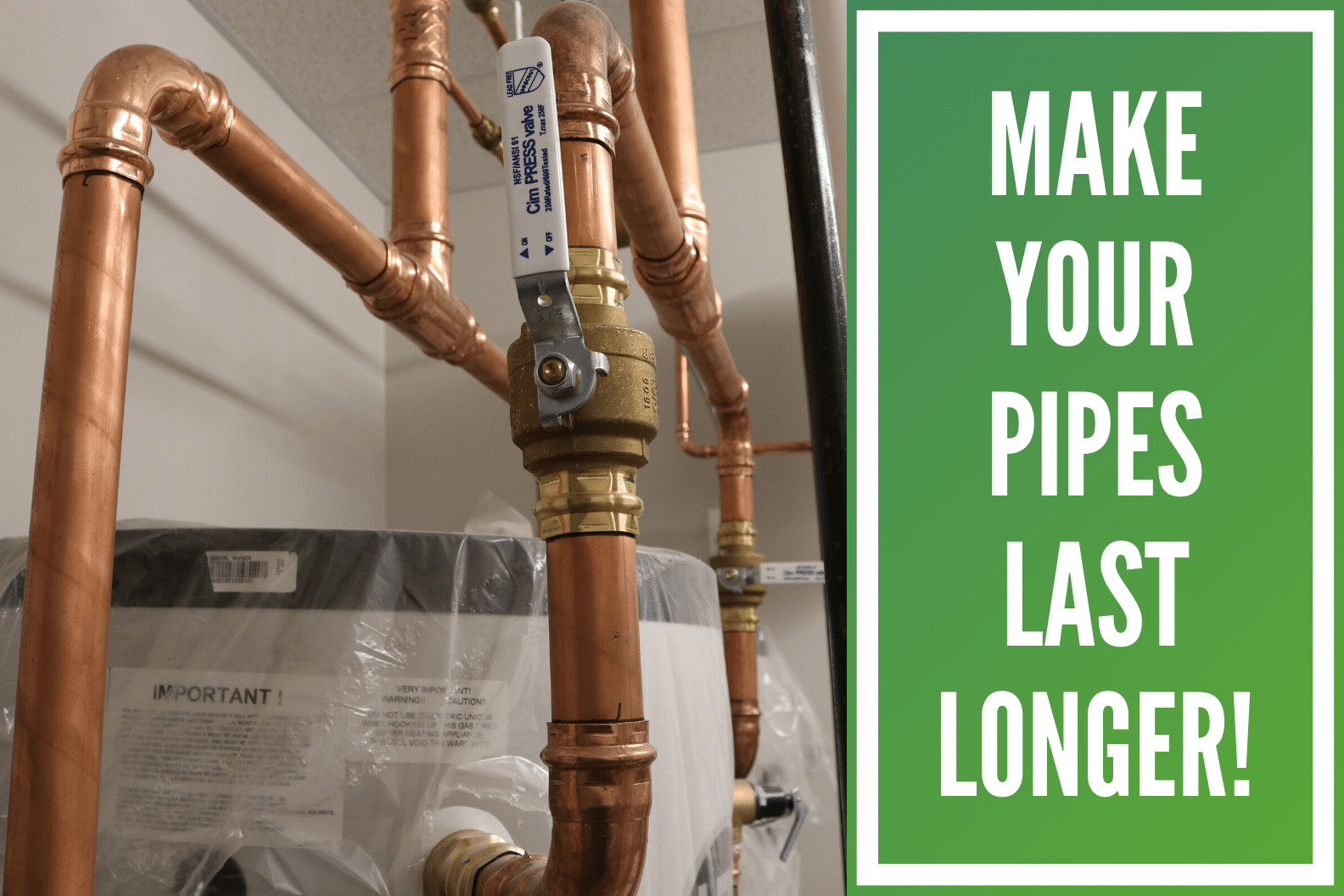When it comes to residential plumbing, I’m sure nearly every Kansas City homeowner would agree with me when I say the longer your pipes can last, the better. Unfortunately, in order to make this a reality, it’s going to require a little bit of work from you, the homeowner. Simply put, your pipes are under intense pressure all day, every day. Whenever you do something, they do something. Whether that be taking a shower, washing the dishes, brushing your teeth or anything else, they’re the ones doing the work behind the scenes.
All of this wear and tear will eventually cause your pipes to thin out and leak soon after. No matter what material is used in your pipes, they’ll all at one time need replaced. There’s no material that’s built to last forever. However, understanding what types of activities are causing the most damage can go a long way in prolonging the life of your pipes.
Here at Stine-Nichols Plumbing, we’re always more than happy to help out with any residential or commercial plumbing project! At the same time though, we also want to educate our fellow Kansas City homeowners on some easy-to-follow tips to ensure you’re not having to hire a plumber for something that could’ve been easily prevented! With this in mind, our blog post this week is all about making your pipes last longer. As mentioned earlier, all piping will eventually wear out, but with a little bit of effort, you can get a few more years of use out of them!
Here’s a few of our favorite tips for getting the most years out of your pipes:
Avoiding chemical drain cleaners
We’ve touched on the dangers of chemical drain cleaners before here on the blog. Even though they can certainly clear up a blockage, it’s the after-effects that are going to impact your pipes. In essence, they aren’t able to tell the difference between your pipes and the blockages. After eating away at the blockage, they can easily keep going and wreak havoc on your pipes. This doesn’t even account for the potential environmental concerns that can be caused by chemical drain cleaners.
In addition, before even considering using a chemical drain cleaner, keep in mind that the plumbing drain could be running slow for other reasons. An inadequate slope to the plumbing, lack of plumbing vents and even other mechanical obstructions could be to blame. All in all, chemical drain cleaners usually cause more harm than good. While they may seem to have solved the problem initially, the long-term effects won’t be as pleasant.
When a drain is running slow, do something to fix it.
Ever had a drain that’s running slower than normal, but is still technically getting the job done? Not really a problem at the time, right? Not so fast! Why do you think the drain is running slow in the first place? Chances are there’s a blockage somewhere in your system. Whenever there’s a blockage, your pipes are going to be working that much harder to do their normal job and the increased pressure will cause more wear and tear on the pipes.
So, if you notice a drain is running slow, consider plunging it right away. If that does nothing to alleviate the performance, think about calling in a local plumber. Considering it’s just a slow drain at this point in time, chances are they’ll be able to snake it and have you back in working order in no time. The key takeaway from this? Your pipes won’t face this increased pressure for much longer and a one-hour service call bill is going to be a lot cheaper than a complete repiping project!
Schedule routine inspections
Our next tip is something we’re all guilty of forgetting at one time or another. As a homeowner, it’s easy to not even think about plumbing until something bad happens. You assume the pipes are in perfect working order, the water heater is spitting out hot water and everything plumbing is just fine! Unfortunately, there can be underlying issues continuously building on themselves, until something major occurs! Some of the time, there’s no way to have predicted this, as it was a sudden occurrence. However, just having a plumbing professional get eyes on everything can typically foresee many of these issues.
With this, we’re referencing routine or annual plumbing inspections. The actual term, “plumbing inspection,” is rather vague and can be comprised of various things. In essence though, it could include flushing your water heater, using a camera to inspect the sewer line or even just running some of the main lines to ensure there’s no blockages. In the end, it will give you the peace of mind that there’s nothing brewing in the pipes and will come at a less expensive price than a drastic repair job.
Knowing your pipes
As we mentioned in the introduction, no pipes are going to last forever. Even if you’re completely careful and get blockages cleared immediately, they are still under wear and tear during regular usage. In addition to the items listed above, you need to understand what material your pipes are built out, how old they currently are, and when is a realistic time they’ll need replaced. While this won’t necessarily make them last longer, it will give you a much better idea of how long they SHOULD last.
Here’s an estimated timetable for some of the more common materials:
- Copper: 50-70 years
- Brass: 40-70 years
- Cast Iron: 80-100 years
- Galvanized Steel: 40 years
- PVC: 50-70 years
As a side note, if any of your pipes are made of polybutylene or lead, we recommend getting them replaced as soon as possible. At different times in history, both of these have been widely used. However, it’s since been proven that neither are reliable solutions and can actually have some serious negative side effects. If you’re interested in learning more about these two, check out our recent blog HERE. We discussed how polybutylene, which was once viewed as a replacement for copper and used heavily from 1978-1995, eventually became the source of a number of different lawsuits! In short, many of the homes with it installed had to learn the hard way that it was nowhere near as reliable as copper!
Need some help from a plumbing pro?
Since opening the doors to Stine-Nichols in 2014, our number one goal was to provide honest and reliable repairs WITHOUT breaking the bank. We understand you don’t want to spend all of your hard-earned money getting pipes fixed or anything else plumbing-related! As a result, we make an effort to always provide advice on-site to prevent the same issue from occurring twice.
One of the more expensive plumbing projects you can have as a homeowner is a complete repiping. Luckily, as evidenced throughout this blog, there’s plenty of ways you can stretch your pipes out for a few extra years. Yes, it takes a little effort and TLC on the homeowner’s side of things, but it can be done!
Whether it’s scheduling a routine inspection or actually making a plumbing repair/replacement, our team at Stine-Nichols is always ready to help. We provide free quotes for projects of all sizes and work throughout the entire Kansas City area and many of the surrounding cities. To get started, either give us a call at 816-348-3481 or fill out the form HERE. We look forward to hearing from you!


